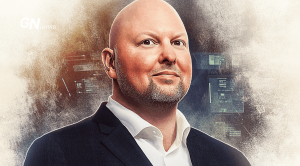BlackRock’s Spot BTC Application Сonsidered Provocative

BlackRock, a financial juggernaut handling assets worth more than $10 trillion, has lodged a proposal with the U.S. Securities and Exchange Commission for the initiation of an ETF. This action has incited a range of reactions within the crypto community and among industry experts. Why?
On this page
To begin with, the timing of the filing for the “iShares Bitcoin Trust” has raised eyebrows as it coincides with the SEC's ongoing lawsuits against crypto exchanges for purported securities trading infringements.
Secondly, the application documents disclose that Coinbase Custody Trust Co., a division of Coinbase, which is currently in the regulatory crosshairs, will be the designated custodian for the ETF.
Essentially, both the timing and conditions chosen seem unnecessarily provocative. This is at odds with the conventional modus operandi of the world's largest investment company, known for its prudence in avoiding direct confrontations with regulatory authorities.
Such a move has subsequently led to conspiracy theories questioning the potential hidden motives – be it from the regulators, who are known to have close ties with BlackRock representatives, or from the company itself.
Recent legal actions by the SEC against prominent cryptocurrency platforms, including Coinbase and Binance.US, have cast a shadow over the likelihood of the regulatory body greenlighting BlackRock's bitcoin ETF. In the past, the SEC has turned down spot bitcoin ETF applications citing concerns about the unregulated nature of crypto exchanges and their capacity for market manipulation.
Eric Balchunas, a senior Bloomberg analyst, labeled the company's application as “shocking,” noting the lack of any indications from the SEC of being receptive to ETFs.
“There’s been no signs at all SEC willing to approve, but BlackRock is very connected so maybe they know something?” he pondered in his statement.
Balchunas viewpoint. Source: Twitter
What could be in the minds of BlackRock's leaders? Is it possible that Gary Gensler's tenure as head of the SEC is approaching its end? Could there be a unified decision amongst political and business circles to overhaul the SEC? This scenario can't be entirely dismissed, especially considering that some contenders for the U.S. Presidency in 2024, including Robert Kennedy Jr., DeSantis, and Suarez, are openly endorsing cryptocurrencies. Hence, it might be time to clear the regulatory field of contentious figures like the current SEC chairman.
Some are also speculating that this might be a strategic move to bolster Coinbase. If the SEC denies BlackRock's application, citing concerns over the custodian's reliability, this could spark one of America's most esteemed investment companies to challenge Gensler directly.
To put it plainly, this application could be perceived as a thrown gauntlet, a direct challenge. Will the SEC be able to pressure BlackRock as easily as it does with cryptocurrency exchanges? The crypto community is split on this issue. However, it's clear that if BlackRock enters the fray, Gensler could find himself in a difficult spot.
Another intriguing theory was voiced by Will Clemente, co-founder of the digital asset research firm Reflexivity Research. He suggests that BlackRock is playing into the hands of regulators who have initiated an “Operation Chokepoint 2.0” scenario. According to him, this is a well-planned scheme to destabilize American crypto companies and make way for traditional firms with strong ties to the U.S. government.
Clemente's viewpoint. Source: Twitter
The situation surrounding the SEC is increasingly tense, with the stakes getting higher. We will continue to closely monitor developments, as all signs suggest that BlackRock's decision could profoundly reshape the U.S. cryptocurrency landscape.
The content on The Coinomist is for informational purposes only and should not be interpreted as financial advice. While we strive to provide accurate and up-to-date information, we do not guarantee the accuracy, completeness, or reliability of any content. Neither we accept liability for any errors or omissions in the information provided or for any financial losses incurred as a result of relying on this information. Actions based on this content are at your own risk. Always do your own research and consult a professional. See our Terms, Privacy Policy, and Disclaimers for more details.



























